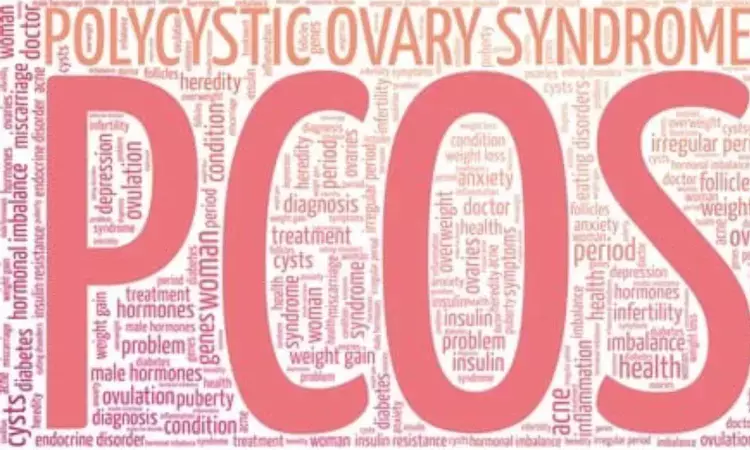- Home
- Medical news & Guidelines
- Anesthesiology
- Cardiology and CTVS
- Critical Care
- Dentistry
- Dermatology
- Diabetes and Endocrinology
- ENT
- Gastroenterology
- Medicine
- Nephrology
- Neurology
- Obstretics-Gynaecology
- Oncology
- Ophthalmology
- Orthopaedics
- Pediatrics-Neonatology
- Psychiatry
- Pulmonology
- Radiology
- Surgery
- Urology
- Laboratory Medicine
- Diet
- Nursing
- Paramedical
- Physiotherapy
- Health news
- Fact Check
- Bone Health Fact Check
- Brain Health Fact Check
- Cancer Related Fact Check
- Child Care Fact Check
- Dental and oral health fact check
- Diabetes and metabolic health fact check
- Diet and Nutrition Fact Check
- Eye and ENT Care Fact Check
- Fitness fact check
- Gut health fact check
- Heart health fact check
- Kidney health fact check
- Medical education fact check
- Men's health fact check
- Respiratory fact check
- Skin and hair care fact check
- Vaccine and Immunization fact check
- Women's health fact check
- AYUSH
- State News
- Andaman and Nicobar Islands
- Andhra Pradesh
- Arunachal Pradesh
- Assam
- Bihar
- Chandigarh
- Chattisgarh
- Dadra and Nagar Haveli
- Daman and Diu
- Delhi
- Goa
- Gujarat
- Haryana
- Himachal Pradesh
- Jammu & Kashmir
- Jharkhand
- Karnataka
- Kerala
- Ladakh
- Lakshadweep
- Madhya Pradesh
- Maharashtra
- Manipur
- Meghalaya
- Mizoram
- Nagaland
- Odisha
- Puducherry
- Punjab
- Rajasthan
- Sikkim
- Tamil Nadu
- Telangana
- Tripura
- Uttar Pradesh
- Uttrakhand
- West Bengal
- Medical Education
- Industry
Hyperprolactinemia Potentially Linked to Insulin Resistance and Metabolic Dysfunction in PCOS: Study

A new study published in the International Journal of Molecular Sciences showed that hyperprolactinemia may act as a pathophysiological link between obesity, insulin resistance, and impaired carbohydrate metabolism in PCOS patients. Elevated prolactin levels could serve as an additional marker of insulin resistance and potentially worsen it in affected women.
According to the diagnostic criteria used, the prevalence of polycystic ovarian syndrome (PCOS), the most prevalent endocrine condition among women of reproductive age, ranges from 5 to 20%. When two of the three criteria 9chronic anovulation, clinical or laboratory hyperandrogenism, and the existence of polycystic ovaries) are met, PCOS is diagnosed.
Moderate to severe insulin resistance is a hallmark of polycystic ovarian syndrome. In women with PCOS, obesity significantly alters the clinical and laboratory profile. Obesity increases the risk of overt diabetes mellitus in addition to decreasing fertility and worsening insulin resistance.
The prevalence of hyperprolactinemia in women with PCOS described in the literature varies greatly, ranging from less than 5% to more than 65%, due to the many variables that impact both PCOS and hyperprolactinemia. Due to prolactin's lipogenic properties and impact on the metabolic profile, hyperprolactinemia in PCOS patients may further worsen the loss in insulin sensitivity. Thus, this study by Vesselina Yanachkova and team looked into the prolactin levels in the blood of women with PCOS and how they relate to prediabetes, obesity, and insulin resistance.
The computerized database of 157 women with PCOS diagnoses was used in a retrospective monocentric analysis. After OGTT, measurements were made of serum prolactin, BMI, the full glucose-insulin profile, and insulin resistance indicators. The BMI (p = 0.007), fasting glucose (p = 0.003), insulin levels (p < 0.001), and HOMA-IR (p < 0.001) of the women with hyperprolactinemia (40.8%) were all considerably higher.
Prolactin levels were considerably greater in PCOS women who were classified as overweight/obese (47.1%), insulin resistant (68.8%), having impaired fasting glycemia (28.7%), and prediabetic (36.3%) than in their respective counterparts. Therefore, among women with PCOS, greater prolactin levels were substantially linked to an increased risk of developing overweight/obesity, insulin resistance, and prediabetes.
Overall, the findings suggest that hyperprolactinemia may be a pathophysiological connection between PCOS patients' obesity, insulin resistance, and abnormalities in their carbohydrate metabolism. In women with polycystic ovary syndrome, elevated prolactin levels might be an additional indicator of insulin resistance.
Source:
Yanachkova, V., & Stankova, T. (2025). Abnormally increased prolactin levels in women with polycystic ovarian syndrome are associated with risk of obesity, insulin resistance and prediabetes. International Journal of Molecular Sciences, 26(9). https://doi.org/10.3390/ijms26094239
Neuroscience Masters graduate
Jacinthlyn Sylvia, a Neuroscience Master's graduate from Chennai has worked extensively in deciphering the neurobiology of cognition and motor control in aging. She also has spread-out exposure to Neurosurgery from her Bachelor’s. She is currently involved in active Neuro-Oncology research. She is an upcoming neuroscientist with a fiery passion for writing. Her news cover at Medical Dialogues feature recent discoveries and updates from the healthcare and biomedical research fields. She can be reached at editorial@medicaldialogues.in
Dr Kamal Kant Kohli-MBBS, DTCD- a chest specialist with more than 30 years of practice and a flair for writing clinical articles, Dr Kamal Kant Kohli joined Medical Dialogues as a Chief Editor of Medical News. Besides writing articles, as an editor, he proofreads and verifies all the medical content published on Medical Dialogues including those coming from journals, studies,medical conferences,guidelines etc. Email: drkohli@medicaldialogues.in. Contact no. 011-43720751


